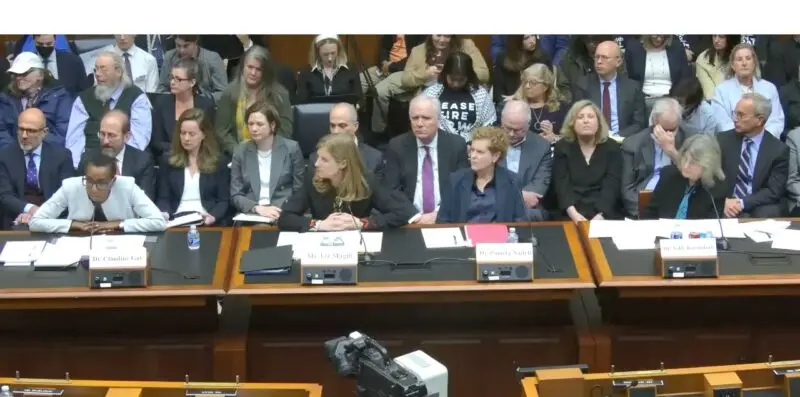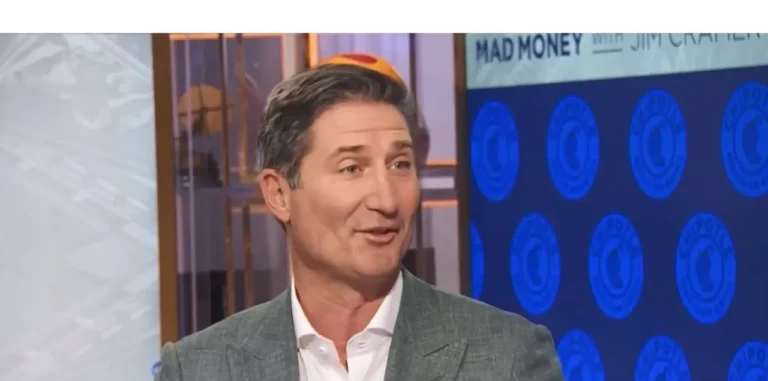What to say, when to say it—and when to shut up
Organizational leaders are expected to take a stand. Communicators, please help them.
In a congressional hearing last week, Rep. Elise Stefanik, a New York Republican, asked University of Pennsylvania President Elizabeth Magill if student calls for the genocide of Jews constituted harassment. Magill’s convoluted, bureaucratic answer produced the sorriest soundbite of the week.
“It is a context-dependent decision, congresswoman,” Magill said.
Ugh.
Scott L. Bok, chairman of the university’s board of trustees, defended Magill, saying she had been “over-prepared and over-lawyered” for her congressional appearance. “She provided a legalistic answer to a moral question, and that was wrong,” he said.
By the weekend, both Magill and Bok had resigned.
Never mind that Stefanik’s questioning of Magill and two other university presidents was a trap to get them to commit to withdrawing admissions offers or imposing other constraints on students’ free speech, explained the Times’ Michele Goldberg. That kind of nuance rarely makes the news when such a juicy bit of blather was available instead.
All this got me thinking: Where were the communicators counseling and preparing Magill and the other presidents? Could they have done any better than the lawyers?
To get some answers, I turned to two friends who know a lot more about this than I do: longtime speechwriter Rob Friedman and Kim Clark, RCG’s resident expert on DE&I communications. Like the university presidents, chief executives sometimes comment on controversial topics, such as antisemitism, they are unprepared to make.
These are not easy waters for organizations to navigate, and CEOs have an option not available to witnesses before a Congressional committee. Writing in New York magazine, political columnist Jonathan Chait said much of the controversy stirred up by corporations, universities and even local governments making “official statements” can be avoided.
“It is a product of the newfound expectation that institutions will issue statements about national and world events,” Chait writes. “The solution is to simply stop making such statements.”
Oh, were it only that simple.
More is expected
“This is such a tricky thing,” said Friedman, who has advised CEOs, university presidents and politicians. “More is being asked of business and organizations, especially when the issues affect their employees.”
Still, business is not in the business of offending its customers, or potential customers, Friedman said. In a country as divided as ours, once you take a stand on an issue, some will disagree with you and even turn against you for your opinions.
He recommends three steps before deciding what to say, and to whom:
1. Pause and think it through. When something happens, like war in Gaza or the Supreme Court decision on abortion rights, there is pressure from all sides to take a stand. Take a breath instead, Friedman counsels, and talk it out. It’s perfectly OK for companies to consider their self-interest, he said. How will this play out for our company, our customers and our employees?
2. If you decide to make a public statement, be on “the side of the angels,” he said, like deploring the loss of life or making sure your employees have access to health services. That may not satisfy everyone, but make sure your statement lines up with your organization’s values. And even if you don’t go public, talk to your employees.
3. Take an action. What can the organization—and its employees—do to help, such as donating funds to relief efforts.
Create a framework
Kim Clark said companies have already staked out positions on the economy, environment and politics based on what’s best for the organization. They need to apply the same reasoning to diversity, equity and inclusion.
“While organizations were not originally designed to play the role being asked of them now, they must do the work to extend their strategic thinking to DEI,” Clark said. “Ultimately, their positions on social issues are identified by their mission, vision, values and objectives”
Companies tend to be reactive to many social topics because they haven’t created a framework that is tailored to the business, is practical and demonstrates the thought process so employees understand the why behind taking a position.
“They may not all agree,” she said, “but they can respect the transparency and effort.”
The DEPTH model, created by Clark and co-author Janet M. Stovall in their 2022 book, “The Conscious Communicator: The Fine Art of Not Saying Stupid Sh*t,” brings clarity to how a company should analyze an issue and decide how to handle it. (DEPTH stands for Deliberate, Educated, Purposeful, Tailored and Habitual.)
Paul Argenti, professor of corporate communications at Dartmouth College’s Tuck School of Business, offered a similar framework in an October 2020 piece in the Harvard Business Review.
- Does the issue align with your company’s strategy? Does your stance line up with your mission and values?
- Can you meaningfully influence the issue? Can you make a difference? Are you willing to put your money where your mouth is?
- Will your constituencies agree with speaking out?
Moving the needle
Both Friedman and Clark said companies should respond externally when they can add to the solution or move the needle in some positive way, and add to the collective knowledge about the situation. Best of all is when internal and external comms work together and employees get involved in shaping the solutions the organization is pursuing.
Finally, Clark cautions against “performative” communication. That’s where you’re making a statement “if you have nothing to add externally, if you don’t know what you’re talking about, if you mimic everyone else, if you don’t have the input of the community that you’re expressing support for.”
Argenti closed his piece by giving Plato the last word: “Wise men [sic] speak because they have something to say; fools because they have to say something.”
Jim Ylisela is co-founder of Ragan Consulting Group and thankful for knowing smart people like Rob Friedman and Kim Clark.
Want to hear more about training for communicators in Kim Clark’s DEPTH model?
Contact our client team to learn more about how we can help you with your communications. Follow RCG on LinkedIn and subscribe to our weekly newsletter here.







